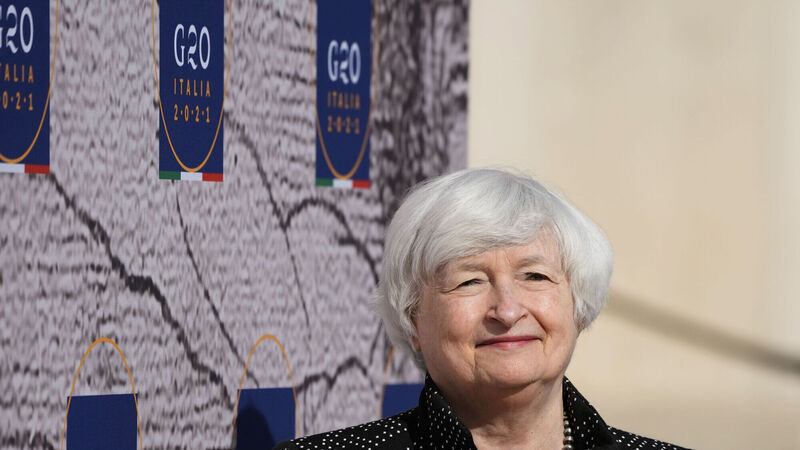Janet Yellen: No cajoling Ireland over global tax overhaul

US Secretary of the Treasury, Janet Yellen. Picture: AP Photo/Alessandra Tarantino
US Treasury Secretary Janet Yellen said she had productive talks but had not cajoled Ireland to sign up last month to the accord for a global corporate minimum tax rate.
Speaking in Dublin, Secretary Yellen said that no country was a winner from the "so-called race to the bottom" and multinationals would now pay their fair share to governments around the world.











